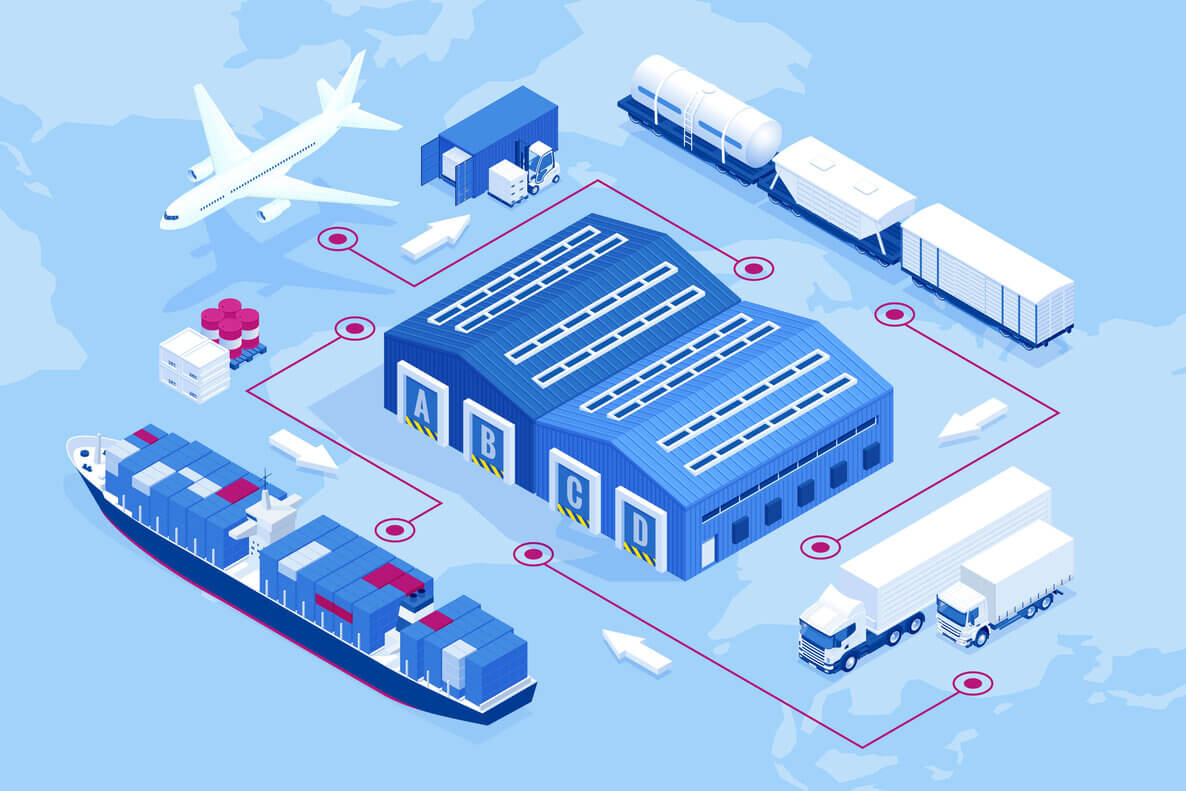In recent years, supply chain management practices have changed drastically. As an acceleration point, the COVID-19 pandemic has intensified these shifts and rewritten the ways supply chain and logistics management are conducted. The need for optimized supply chains has become a key priority for many businesses in order to survive. According to Deloitte, 79% of companies with high-performing supply chains surpassed industry competitors in terms of revenue growth.
Why is logistics management important?
As logistics management is a crucial part of supply chain management, the way companies handle it required changing, too. Logistics management is a controlled and optimized flow of goods on a local, regional or global level. The efficiency of your management efforts directly impacts supply chain strategy and the company’s bottom line.
3 Best Practices for Better Logistics Management
Diversify logistics partners
In the coming decade, global supply chains will become more flexible. The need for agility in logistics management as well is caused by the fast-paced and changing environment of the global economy. New supply and demand requirements, new trends, and new technologies cause companies to be more. In terms of logistics management, flexibility refers to diversifying your network of suppliers and carriers. As the previous year has shown, maintaining a narrow pool of logistics partners can put a significant strain on your strategy. Businesses that will be more quick and agile in adjusting to the trends are more likely to outrun the competitors and stay relevant in the market.
Automation and data analytics
Automation and supply chain visibility is becoming the leading priorities for businesses across the globe. As logistics networks become more complex and interconnected, the only way to reach insights from your logistics operation is to analyze historical data and monitor shipments in real time. Companies that want to improve their logistics management should use robust automation and data centralization software, like a transportation management system (TMS). Software solutions let you integrate with the systems of your logistics partners, which gives even more opportunities to gather data and extract valuable insights.
Increasing lead times
Extending transportation lead times if possible is an old but gold rule for better management. Extended lead times drastically increase the pool of carriers and equipment
from which to choose. This can mean a higher quality of service or the ability to find the carrier for specific requirements. Generally, you have more control over the shipment if you’re booking it earlier. If you or your 3PL secure carriers in advance, you ensure better performance, less room for delays and disruptions, and accurate pick-up and delivery times.
Choosing a Logistics Management Company
PLS Logistics is a leading 3PL provider with more than 30 years of experience in logistics management. Need help with your logistics efforts? Learn more about our solutions now!

